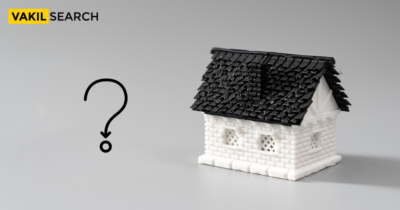The most frequent error made by business owners is using their names when buying commercial property. There are a few more too. Read this blog to know more about the mistakes that you need to avoid while buying commercial properties in India.
Investment in real estate is more of a science than an art, requiring careful preparation and consideration of many different elements. Even more, caution is needed when investing in commercial property because the investment amount is often large, and various factors affect this kind of property’s returns and price growth. The commercial real estate market is dynamic, and different factors that affect the ability to generate rent and even the increase in property prices occasionally alter.
Changes in the government or policy might significantly impact the power of the property to generate income for you. A region’s environmental effect, and therefore new legislation enacted to preserve Mother Earth in that area or zone, might influence a building’s ability to generate income. Real estate for businesses is a fluid market. The returns and price appreciation on such assets depend on various factors.
Several important factors can affect the returns on your investments, including the economy’s state, the unemployment rate, changes in governmental regulations, and an abundance of commercial properties. Therefore, to protect yourself from the hazards associated with the entire process, you must have a thorough grasp of your topic and be aware of the errors you must avoid.
We examine some of the typical pitfalls or even mistakes that investors should avoid while making commercial real estate investments:
1. Have Knowledge about the “Proforma”
Typically, documentation and studies describing the property’s earning potential and ability to generate money are provided by sellers or brokers. Sometimes the term “Proforma” is used in conjunction with earning estimates. This Latin expression translates to “for the sake of form or appearance.” The studies and documents that elaborate on the property’s potential to generate money in the future are based on hypothetical circumstances. Be entirely honest when estimating the property’s ability to generate money. This may be done by looking at the nearby properties and the local real estate market.
2. You need to do a thorough commercial property survey
When you tour a home before investing, most sellers and brokers will only show you the most significant areas of the structure. After an incident, such as a fire, these components will either be free of damage or restored. You must insist on inspecting the entire structure, from top to bottom. Look at all the warehouses where raw materials are kept to see if the property is utilised for industrial purposes. The poorest areas of the property are typically the warehouses where raw materials are housed, and you may need to renovate quickly after buying the property. Whether a portion of the structure has recently undergone renovation, you should carefully inspect it to see if the repairs were made with adequate care or if they will result in issues shortly after you buy the property.
3. Environmental regulations and restrictions
Pay close attention to the environmental regulations that apply in the area or zone where you are considering investing. Typically, neither the broker nor the seller will even broach the subject. The buyer must know the type of activities permitted in the area and zone. It might be unfortunate to lock your money in a home to conduct a specific sort of company only to discover that the activity is not even permitted in the neighbourhood. It will be a good idea to hire an expert and double-check with a neutral broker in the area.
4. Not taking into account the income of renters
Take a thorough look at the tenancy if you are investing in a building that already has renters. What kind of stores are there, and how much money do they make each month and annually? You may also determine whether there is a strong chance that the renters will stay for a long time by looking at the rent-to-sales ratio. A rent-to-sales ratio of less than 5% is seen as favorable. Accordingly, the rent shouldn’t account for more than 5% of total sales. If the rent-to-sales ratio is higher than this limit, you should wait to invest in the building because the tenants may vacate sooner rather than later. It will also be beneficial to look closely at each tenant’s lease terms and lease agreements. If most of the tenants in the commercial building have signed short-term leases, there is a higher likelihood that you will have empty showrooms and offices in the building in a few years or months, which will result in lesser revenue for you. Usually, it takes some time to locate a replacement tenant for an existing one, and the space is left empty.
5. Hidden costs
some other fees and charges are occasionally concealed in the sale conditions and property paperwork by the broker and the seller of the property. These may be statutory and local taxes that fall under the purview of the seller. There may also be pending repairs, but the seller may be attempting to shift the cost of making such repairs to you. The seller could charge you for the premium if there is ongoing insurance for the building. Generally speaking, there is no harm in purchasing a building previously insured, but the insurance policy would have been acquired based on the needs of the former owner and may not be beneficial to you, and for the use you want to make of the property. For instance, the previous owner could have kept a particular product or raw material in the structure while also purchasing insurance. It’s possible that you need to maintain such raw materials, in which case this regulation may not apply to you.
6. Improper due diligence
Two words sum up investing in commercial real estate ideally: cautious optimism. Investors should refrain from entering into a deal too quickly to capitalise on the prospects in a commercial real estate market that is rapidly changing. Furthermore, thorough due diligence is necessary to unearth any significant facts that would not be obvious otherwise. Such unstated facts might reduce the financial benefits of a trade that would otherwise be profitable. To avoid regrets later, it is essential to thoroughly understand the local market and the property.
Conclusion
Buying commercial properties is a crucial and critical decision to take. So before buying any commercial property, do not forget to connect with the experts of Vakilsearch.
Read More :










